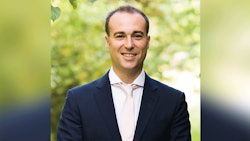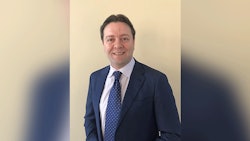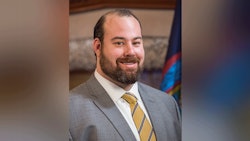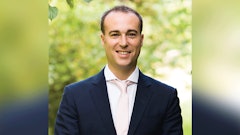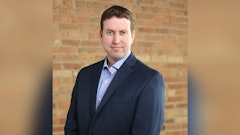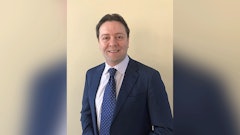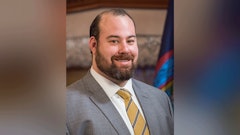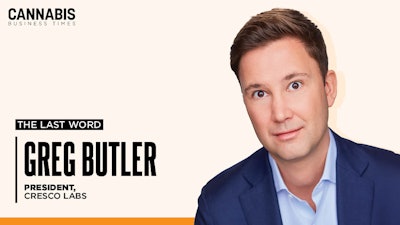
Last July, Cresco Labs and Columbia Care announced that the cannabis companies were terminating their blockbuster, $2 billion dollar merger agreement, a complex deal between two of the largest multistate operators in the country that was 16 months in the making.
At the time, Cresco’s co-founder and CEO Charles Bachtell had said that the mutual parting was in the best interest of the company and its shareholders long term, according to reporting from Cannabis Business Times.
“Moving forward, we remain committed to our Year of the Core strategy, which involves the swift restructuring of low-margin operations, improving competitiveness and driving efficiencies in markets where we maintain leading market share, and scaling operations to prepare for growth catalysts in emerging markets,” Bachtell said in the July 31 release.
Nearly eight months later, Cresco Labs published its Q4 and year-end 2023 financial results, which provided more details into how the company pivoted in the second half of the year after the deal fell through. Despite that setback, Cresco Labs opened 16 new stores last year, and gross margin and EBITDA margin were up from the previous year.
One reason for the shift is because Cresco Labs, instead of focusing on what the future may look like as a combined company with Columbia Care, could instead reinvest in its “core” markets and its already established retail and cultivation operations, said Greg Butler, who was promoted to president of Cresco Labs in February. It also required difficult decisions to exit markets and restructure teams. (Editor's Note: Columbia Care rebranded and in September 2023, unveiled its new company name, The Cannabist Company.)
In this exclusive conversation with Cannabis Business Times, Butler, who joined Cresco as chief commercial officer in 2020 and had previously advised the company since 2018, reflected on the past year, how the company moved forward after the The Cannabist Company deal was terminated, lessons he’s learned in this industry and from previous roles at Pfizer and Molson Coors, and what’s in store for the Chicago-based company in 2024.
Michelle Simakis: Cresco Labs recently published 2023 year-end financial results [March 13, conversation was March 25]. Was there anything that surprised you about last year’s performance?
Greg Butler: The biggest challenge in this industry is how much in taxes we have to pay. We pay our taxes. We're fully up to date on them, but we're paying a lot of money in taxes, vis-a-vis other traditional industries. And whenever I see that number, I'm like, man, that seems so unfair.
Simakis: Has Cresco explored filing an amended tax return for overpayments related to 280E, similar to what Trulieve and other multistate operators have done?
Butler: We are making the choice right now to continuously pay both our federal and state taxes. So we are up to speed on them. But I think as we look at how the industry is evolving, we are always prepared to assess our tax position and figure out if we want to follow suit.
Editor's note: Read CBT’s coverage on cannabis rescheduling and how a reclassification to Schedule III would eliminate 280E for more information and background.
Simakis: There were references to the “Year of the Core” in the financial report, which is something Cresco Labs CEO Charles Bachtell has referenced this past year. (See quote above.) Can you talk a little bit more about that strategy and share examples of how you’ve restructured, how you’ve improved competitiveness and how you’ve scaled operations, and what some of the top priorities are for 2024?
Butler: When we talk about “Year of the Core,” we have a collection of core states in our current footprint that are very enviable. They're great states; they are large; we have opportunities to continue to grow. And so, focusing on those was critical. As I'm sure you're aware, we were on track to potentially close a very transformational deal [with Columbia Care, now The Cannabist Company] for our industry, which would've added tremendous complexity to Cresco Labs. And so, I think we had built an organizational design to really bring that organization on board. When that deal didn't go through, and we can talk about that later, it created a moment for us to relook at our business and ask, “What is the most efficient way in which we can get more from our core states in our brands and our retail?”
And so as we transitioned out of the Columbia Care deal, we made the hard decision—and these are always hard decisions because it impacts people's jobs and structures—to really reduce how much decision-making was happening at our corporate office and empower a lot more quicker, more agile decision-making closer to our facilities, our states and our retail. And what we found is not only did we deliver the results clearly as the financial reports showed, but the culture improvement of empowering leaders, building a more nimble company that we could react more quickly to specific local market trends or local market opportunities, while giving people in our company a real opportunity to lead, was a pretty big unlock that was instrumental.
Simakis: What are the key states you are focusing efforts on?
Butler: We love all of our states, but they are Illinois, Pennsylvania, Ohio, Michigan, Massachusetts, Florida, and we're still figuring out what we're going to do with New York, probably not a surprise for you. We had to make the tough decision to walk away from Maryland, not because we don't like the state of Maryland, but the structure we had didn't really get us to the license [with] a scalable position in the state. [Editor’s note: Maryland limits companies to four dispensaries.] We’ve had to make some really tough calls in California. California as a market, it’s just really tough, so we slimmed down there. And then, ultimately, we made the hard decision to exit Arizona because we just didn’t see a pathway to profitability that made sense for us.
Simakis: I know there was so much excitement around the Columbia Care deal, but despite the setback, you opened 16 new stores last year. I know that you exited states, but you also grew. Can you talk a little bit about your focus for the last six months of the year and how you pivoted?
Butler: If you think of when we announced the deal to when we ultimately made the decision to terminate the deal, it was many, many quarters. [Editor’s note: The deal was announced in March 2022, expected to close that year and terminated in July 2023 after multiple extensions.] We had to make decisions on where we were going to invest and not invest. Columbia Care was going to be coming on board. They have their own stores. There may be things from those stores that we want to lift and shift and put into our stores. And so, it made us stall on investments into our own retail because we were waiting to see what the sum of parts was going to look like on the retail platform.
While we worked on the deal, we didn't make some capital decisions in some of our core markets because we were holding off to see if we should be putting it into another state.
And Columbia Care had some great states that we were really excited about. It also had some great capabilities in their stores and some great brands that we were interested in bringing across our platform. But ultimately, the financial deal terms in the end just didn't make sense. It would've been putting too much debt, too much risk on the combined company, and that's ultimately what led us to leave.
So what the last six months were focused on was us saying, “Well, now without that, we now know where we want to invest.” And so, we invested in our own retail platform.
If you look at our gross margin and our COGS line, we were holding some of the small capital investments to see where we were going to have to place dollars in the combined company with Columbia Care, and we were able to put those dollars into markets like Illinois and Pennsylvania and see some pretty nice efficiency gains.
Simakis: You mentioned the markets you were focused on as part of the Year of the Core strategy. Will that continue in 2024 or is there anything that might shift?
Butler: I think what we're learning, and what maybe the cannabis industry needs to learn, is patience. This has been a rapidly growing, rapidly changing industry for the last couple of years, and we've got a formula or an equation that's working for us, and so we're going to continue to run it and drive growth. Of course, there are additional states that we would love to get into for the right partnership, right structure, but we see that there are continued growth opportunities in our footprint now.
Ohio is a big one that excites me. Pennsylvania could be right on the heels of Ohio, and we're the number one operator in the state, so we don't plan to give an inch as that state goes adult use. [Editor’s note: Cresco Labs operates 15 Sunnyside dispensaries in Pennsylvania.] [Florida] would be a huge market catalyst for the entire industry and particularly for us. So those are really, really exciting.
I think we've managed our exposure in the states that we're concerned with.
Simakis: What has surprised you most about the cannabis industry since you started working with Cresco Labs in 2018?
Butler: I would say probably what surprised me the most are the complications of regulations both at the federal level and state by state for a product that is in demand and accepted. Here's a growing industry where there's an opportunity to really make a difference and drive growth by normalizing and then also professionalizing the industry, which is what we are always trying to do at Cresco.
What I probably underestimated is that, whether it's federal regulations, all the different state-by-state-specific nuances, or challenges in cultivation, manufacturing, distribution, selling to wholesale customers or running your own retail store, it is—and I worked at Pfizer in pharma—more complicated with more specific rules than we had to in the pharma industry.
Simakis: Was it because of how the rules vary so much state by state?
Butler: State by state, and also just the federal oversight. If you look at, from seed to sale, the amount of tracking we have to do, it is way more than beer. Alcohol's a highly regulated industry, but cannabis has way more tracking. And even compared to pharma, the fact that we have cameras in our facilities and stores and every single item is tracked, it's intense. Here is an industry that is so nascent and beginning its journey, but it is so encumbered by more things than multi, multibillion dollar industries that are a hundred years old. It still often surprises me just how hard it is to do things. Think of Pennsylvania and its platform. If the state's platform MJ Freeway goes down, business stops. What other industry is there where the whole industry can come to a halt because of a platform that's connected to the state? Not alcohol, not Walgreens.
There is so much regulation and bureaucracy and process put on this industry that, in many ways, is necessary for patient health and all the stakeholders, but it also puts a ton of pressure on this industry and these teams.
Simakis: You mentioned before, normalizing and professionalizing the industry, producing products and medicine that resonate with consumers and patients, making sure the messaging makes sense, making sure they have a good experience as being some of the top goals at Cresco. How do you communicate that to the team, that your overarching goal should be at the forefront despite, as you mentioned, all the challenges that people working in the cannabis industry face each day?
Butler: There's a great quote that someone once gave me in my career early on, which is, “If you want loyalty, get a dog.” In the world of business, there's no real loyalty. You've got to constantly earn and re-earn that business. So, in our wholesale business, we’re always asking: How are we building brands that have a deeper connection with our consumers? How do we offer better quality at a fair price than what they can get from everyone else? And how are we continuing to innovate and think different occasions differently and earn that business? Don't take, because they've been loyal for the last couple of months, quarters, years, for granted.
Simakis: Is there an example or a story that helps illustrate how you never take the customers for granted or the states that you're in for granted, that you keep earning business and loyalty?
Butler: We launched our value brand High Supply. You’re giving up a little bit on quality, but we're giving you a great deal on the products you're getting. So quality for your buck is really, really high. And I got a lot of feedback when we launched it because people thought we were just going to shift down these consumers that are already buying an eighth that's of comparable quality, but paying a lot more. But when you looked at consumer segmentation, you realize all consumers have lots of occasions in their lives. And just because we offered a value brand, it didn't mean that the consumer was going to shift down every one of their cannabis occasions to that brand.
Instead, it meant that when they only could afford to budget a certain number of dollars, we were going to give them a brand that was perfect for that occasion. They were buying more cannabis at a better price for their Monday through Thursday occasion, and then Friday night they might buy something special.
You could have looked at it very rudimentarily, where offering a very similar product at a lower price is bad—you're just going to make less money. Or you could look at it as, “I'm solving a need of my consumers,” which is a more affordable week[day] product, which then enabled them to spend more on the weekends when they wanted a different, more premium experience.
Simakis: Were you able to see this in store data and average basket sizes?
Butler: The biggest thing that we saw on that is on price per gram, you're giving them a bit of a discount, but then they're rewarding you with the average size of their ticket and absolute dollars they're spending with you went up.
Simakis: If someone asked you what is the state of the cannabis industry today, what would you say?
Butler: 2018, 2019, it was the green rush, as people called it. It was the early boom. Companies were going public and there was excitement. But if you step back and you look at today, federal reform and banking are probably taking longer than a lot of people had hoped. But we continue to see consumers realize the role in which cannabis can play in their lives, whether that's legacy consumers buying more than they've potentially have in the past. Because even though unit prices have come down, we're still selling and people are enjoying more units of cannabis than we've ever seen before.
You're going to have more states make it easier to be a consumer in the future. I think something will happen in Georgia and Texas, and these adult-use conversions are going to open up states that's going to drive continued adoption. You have a president that has referenced cannabis in the State of the Union. The fact that those references made it in there tells you something about the future of cannabis.
My wife always uses an expression with me, which is, “Happiness is a difference between expectations and reality,” and I live by this equation. And I think in this industry, not everyone's happy right now, but I think because expectations were set too high versus reality.
We're in such the early days of this industry in the U.S. and globally that I just think it's a fun time to be here and exciting. Some people are frustrated, or think it's not fully living up to the business expectations they envisioned. And I would just hope as an industry, we don't let that distract us too much from the bigger mission, which is that we all have an opportunity to build one of the most revolutionary consumer industries I think we're going to see in our lifetime.
Editor's Note: This conversation has been edited for length, style and clarity.










